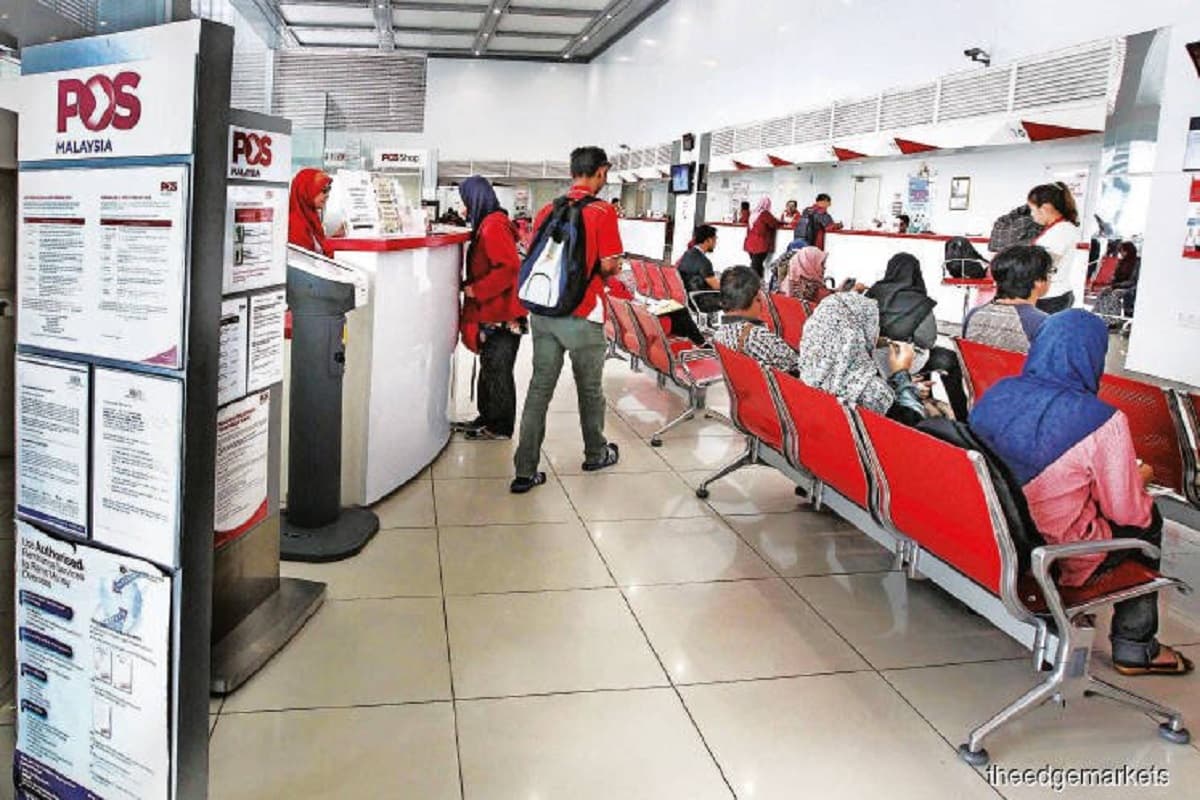
KUALA LUMPUR (June 17): Industry players can expect to see cost savings from the five-year National Courier Accelerator Plan (PAKEJ) programme, amid plans for asset and infrastructure sharing among the different players.
During a media briefing today, MCMC chairman Dr Fadhlullah Suhaimi Abd Malek said the initiatives, which will be implemented between 2021 and 2025, include the setting up of a shared parcel point network comprising pick-up and drop-off (PUDO) points, as well as the sharing of postmen across different service providers.
“In terms of the parcel points, if players were to build their own, there would be high capex. If we share the parcel points across the industry, this means the cost of building out their network is now minimised, which will reduce both the capital cost and operating costs,” said Fadhlullah.
There are currently 10,000 of these PUDOs nationwide, with MCMC targeting to set up about 4,000 PUDOs per year to meet its final goal of 30,000 points by 2025.
He added that a similar principle applies for postmen communities — communities of postmen in rural and remote areas — as the industry players can also share assets to reduce operating costs.
Greater efficiency can also be seen with the deployment of new three-wheeled electric vehicles for the delivery of packages that are too big for motorcycles and yet too small or inefficient for courier vans to deliver.
MCMC is currently engaging with the Ministry of Transport for its approval of these new vehicles.
Another aspect of how the initiative can help improve profitability of industry players is the revisiting of the licensing framework for service providers, which Fadhlullah said will allow players to be more focused and allow them to pay their deliverymen better.
“If [the players’] profits are better, their ability to pay would be better and we would not see complaints from the workers in the industry of overworking,” he said.
Meanwhile, City-Link Express Sdn Bhd chief executive officer Ronald Tan said the greater collaboration between the postal and courier network infrastructure will create better economies of scale.
“Through economies of scale, we believe the players will achieve better profitability and sustainability. At the same time, from the environmental angle, the usage of the electric three-wheelers will also lessen our carbon footprint and also allow for better economies of scale in reaching into areas that we find would be better served by these three-wheelers,” Tan said.
However, the industry players present during the virtual briefing could not give an estimate on the amount of cost savings that would arise from these initiatives at the moment, as the details have yet to be set in stone.
“At this point in time, we are still trying to flesh out and scope out the initiatives. It’s very difficult to give any sort of estimation at all with regard to cost savings, but we are quite sure there will be cost savings,” said Ninja Van country head, Malaysia, Adzim Halim.
Meanwhile, City-Link’s Tan explained that delivering to a parcel locker would be cheaper as the service provider will only need to deliver all goods for the area in one go and be done with it, instead of having to come again at a different time in the event that the recipient is not home.
For remote locations, currently different courier companies have to deploy their own assets to these low-density areas, which makes the asset sharing of the postmen community initiative much more efficient.
GD Express Carrier Bhd managing director and group CEO Teong Teck Lean said the sharing of infrastructure could be beneficial for some of the players that do not have the capabilities to run a bigger ecosystem.
“It could be that some of the players do not have the [capabilities] currently for integration that would be needed for a bigger ecosystem. This might be in terms of cybersecurity or backup systems that may be needed.
“Overall, if this goes well, it would mean one thing for sure — there will be better service for the rakyat,” said Teong, who is also the president of the Association of Malaysian Express Carriers (AMEC).
From the consumers’ perspective, PAKEJ is also aiming to improve the quality of service provided by industry players, especially amid the surge in usage of online shopping via e-commerce platforms, which has resulted in the number of packages delivered per capita to double from seven packages in 2019 to 14 packages in 2020.
These initiatives include the employment of a holistic digital infrastructure of courier coverage areas for future planning, as well as a national address system for granular visibility.
Consumers will also be entitled to subscribe to a basic service package, which will see improvements to the service level agreement (SLA) with customers being entitled to compensation if there is failure to meet the SLA plus three days, or a guaranteed service package, which will include same day or next day delivery services with a guaranteed delivery time frame, as well as compensation for failure in meeting the agreed standards.
Consumers will also benefit from the review of the licensing framework, which Fadhlullah said will provide a legal framework to protect not only the industry but also the consumers.
This is particularly important for rural areas, as it aims to ensure services are provided even in the far reaches of the country.